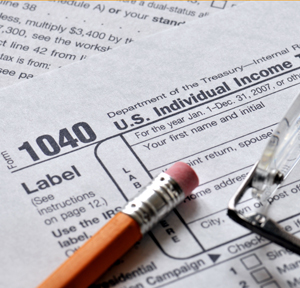Legal
Hong Kong-Based Americans Should Welcome New IRS Programme - Withers

The latest developments announced by the IRS will be welcomed by Hong Kong-based US citizens and green card holders, as a simplified process of US tax and reporting obligations
Last week the IRS announced major developments in connection with US persons needing to come into compliance with their worldwide US tax and reporting obligations, which are more favourable and simplified. Given the significant number of US citizens in Hong Kong, Jay Krause, head of wealth planning Asia at law firm Withers, believes the changes – which he outlines here - will have a favourable impact on US citizens in the city-state.
The IRS reports having raised over US$5 billion from its 2009 and 2011 taxpayer voluntary disclosure programs. Over 1,500 new US citizens and green card holders have come forward under the 2012 Offshore Voluntary Disclosure Program established early this year.
The IRS has announced both a certain tightening of the eligibility requirements for participating in the 2012 disclosure program, and a new plan to help certain “low-risk” US citizens residing overseas who owe little or no US taxes to become current with their US tax filing and reporting obligations without incurring civil penalties.
The new procedure for certain “low-risk” US taxpayers who currently reside outside the US will come into effect beginning on September 1, 2012. Under this arrangement, qualifying individuals will be able to file three years of delinquent US tax returns (including required information reporting forms) and six years of FBARs without the imposition of asset based penalties.
This compares quite favorably with the eight years of back returns and FBARs required under the 2012 OVDP, not to mention the asset based penalty on under reported financial accounts under the OVDP generally applicable at 27.5 per cent of value (though certain individuals can qualify for reduced rates).
The 2012 OVDP also gives US citizens and green card holders with undeclared bank accounts a chance to come clean while mitigating the risk of criminal prosecution, which benefit is not offered under the new procedure for “low-risk” individuals.
Simultaneous with the announcement of the new "low risk" program, the IRS is putting pressure on US citizens and green card holders with unreported accounts at financial institutions being investigated by the US Department of Justice to come forward now.
Although the mere fact that the US has made a treaty request or a “John Doe” summons has been served on a non-US financial institution will not result in ineligibility to participate in the voluntary disclosure program, taxpayers who appeal the disclosure of tax information in response to a treaty request in a non-US court without notifying the US Department of Justice of their appeal will no longer be eligible to participate in the OVDP.
In addition, the IRS may announce that certain groups of taxpayers that have or had accounts at specific non-US financial institutions will be ineligible to participate in the OVDP due to pending US government actions in connection with those specific institutions.
Details regarding eligibility or ineligibility of specific taxpayer groups connected to such institutions will be posted to the IRS website.
Because ineligibility on this basis is expected to be prospective, taxpayers should still have the opportunity to participate in the OVDP until such details are released.
There is no doubt that the latest developments announced by the IRS will be welcomed by Hong Kong-based US citizens and green card holders, many of whom are now presented with a simplified process of US tax and reporting obligations as a result. The changes also importantly underline the impact made by feedback and input from practitioners and the IRS' willingness to listen and cooperate to find a more favourable solution.
These developments mean that in many instances, Hong Kong-based US persons with less than US$1500 in tax due each year can now go back just three years for tax returns rather than the previous eight years required. In addition they will no longer be subject to the penalties on the value of their undisclosed assets that apply under the full 2012 programme.